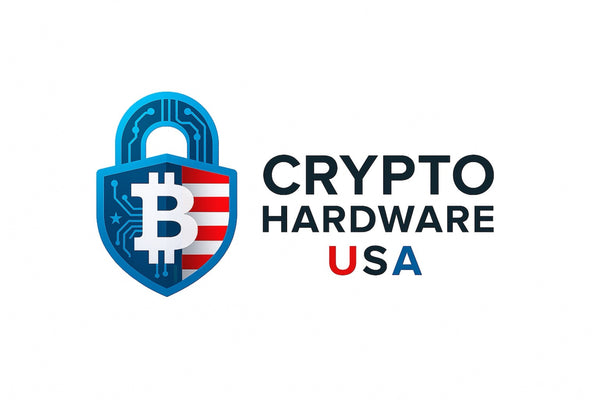Crypto Hardware Wallet FAQ
1. What is a hardware wallet and how does it work?
A hardware wallet is a physical device designed to securely store your cryptocurrency offline. Unlike online wallets (also known as “hot wallets”), a hardware wallet keeps your private keys isolated from the internet. When you make a transaction, the wallet signs it within the device itself, ensuring your keys never leave the secure environment. This drastically reduces the risk of hacking, malware, and phishing attacks.
2. What’s the difference between a hot wallet and a cold wallet?
A hot wallet is connected to the internet, making it convenient but more vulnerable to cyberattacks. A cold wallet, such as a hardware wallet, is kept offline, providing much stronger protection against theft. Many crypto users keep small amounts in hot wallets for everyday transactions while storing the bulk of their assets in cold wallets for long-term security.
3. How do I transfer my crypto from an exchange to a hardware wallet?
To move your crypto to a hardware wallet:
- Set up your wallet and securely store your recovery seed.
- Connect the wallet to its companion app and generate a receive address.
- On your exchange, choose “withdraw” or “send,” then paste in the address from your hardware wallet.
- Tip: Transfer a small test amount first to ensure the connection is correct and the transaction completes successfully.
- Confirm the transfer. Once confirmed on the blockchain, your crypto will appear in your wallet.
Remember: the assets themselves always stay on the blockchain—your hardware wallet secures the keys that prove ownership.
4. Can I store multiple coins on one hardware wallet?
Yes. Most modern hardware wallets support a wide variety of cryptocurrencies, including Bitcoin, Ethereum, altcoins, and tokens. Typically, you can manage different assets through companion software linked to the device. However, compatibility depends on the wallet model, so always verify whether your preferred coins and tokens are supported.
5. What’s the difference between an open-source and closed-source hardware wallet?
Open-source wallets have publicly available code, which allows independent experts to audit security features. This transparency helps build trust in the wallet’s integrity.
Closed-source wallets keep their code proprietary, which can make it harder for outsiders to verify, but they may still undergo third-party audits.
Both types can be secure, but open-source solutions often appeal to users who value transparency and community review.
6. Why is a hardware wallet safer than leaving crypto on an exchange?
When you keep crypto on an exchange, you don’t directly hold the private keys—the exchange does. This means you’re trusting the exchange to safeguard your funds. In many cases, exchanges can lend, pool, or stake user assets as part of their operations. While you still “own” the crypto, you are exposed to risks such as exchange hacks, insolvency, or withdrawal freezes.
A hardware wallet ensures that you alone control the private keys, eliminating the counterparty risk of relying on a third party.
7. What is the safest way to store crypto in 2025?
The most secure method is to use a hardware wallet combined with good security practices:
- Store your recovery seed offline in multiple safe locations.
- Enable two-factor authentication (2FA) on any connected accounts.
- Avoid sharing wallet details online.
- Keep firmware updated for ongoing protection.
This layered approach ensures your crypto remains safe from cyberattacks, scams, and exchange-related risks.
8. What is FIPS and why does it matter for hardware wallets?
FIPS stands for Federal Information Processing Standards, which are U.S. government security standards used to validate cryptographic modules. The most relevant standard is FIPS 140-2/140-3, which tests how securely a device protects sensitive information such as private keys.
When a hardware wallet is FIPS-certified, it means it has passed rigorous third-party testing to ensure its cryptographic security meets government-grade standards. This provides extra assurance for individuals and organizations who require the highest level of trust in their security devices.
While not all users need FIPS-certified wallets, choosing one can be especially important for institutional investors, enterprises, or anyone who values proven, independently verified security.
Ready to secure your crypto? Browse our trusted hardware wallets now and take control of your digital assets with confidence.
